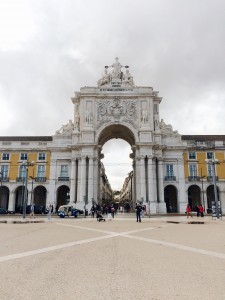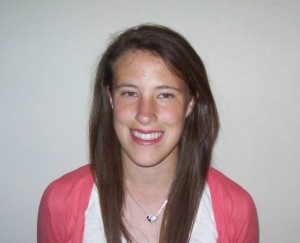This is the next in a series of posts by recipients of the Career Services Summer Funding grant. We’ve asked funding recipients to reflect on their summer experiences and talk about the industries in which they’ve been spending the summer. You can read the entire series here.
This entry is by Ping Nguyen
My professors often say that the most significant life lessons are not learned in a classroom setting, but they are deeply rooted in life experiences of others. In a social work classroom, one of my professors introduced to me the idea of “grits” by a fellow Penn professor Angela Duckworth. Duckworth defines “grits” as a combination of passion and resilience expressed over a period of time. A person is “gritty” when they can bounce back from failures, continue to strive hard for their dreams, and sustain this attitude over an extended period of time. I never truly grasp the sagacity of Professor Duckworth’s concept of “grits” until I met a cohort of low-income, single Vietnamese mothers.
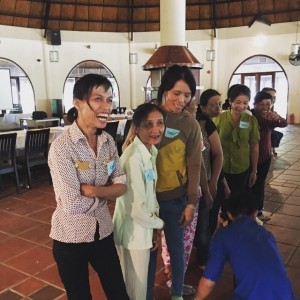 As an intern for Children of Vietnam, one of my roles is to write narratives about the beneficiaries of the organization. As such, I got to travel to many low-income Vietnamese mothers’ house to interview them about their life stories and the challenges they encounter. As a low-income student in United States, I can understand what poverty looks like in America. However, I cannot imagine living in the conditions that these women were living under. Some women started their days at 4:00 am; some walked 3 hours under the scorching sun to get to work and must take the same journey home; some had to tend over their disabled children while working on the land. All never understood what it was like to have a day off or what a “good life” is like, yet none has ever given
As an intern for Children of Vietnam, one of my roles is to write narratives about the beneficiaries of the organization. As such, I got to travel to many low-income Vietnamese mothers’ house to interview them about their life stories and the challenges they encounter. As a low-income student in United States, I can understand what poverty looks like in America. However, I cannot imagine living in the conditions that these women were living under. Some women started their days at 4:00 am; some walked 3 hours under the scorching sun to get to work and must take the same journey home; some had to tend over their disabled children while working on the land. All never understood what it was like to have a day off or what a “good life” is like, yet none has ever given 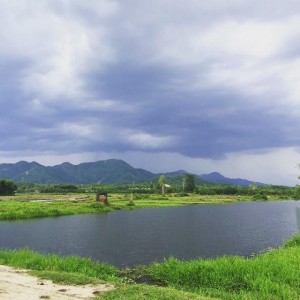 up. These Vietnamese mothers truly believe that they can have better lives for themselves and for their children if they continue to work hard and if they do not give up . When asked about happiness, they say that they find happiness in a little things – being able to have rice on the table, to be able to purchase new clothes for their children even if it is once a year, or simply to have the strength to continue the next day labor. Although some days are harder than others, these are the little things that keep them going everyday. I have never witnessed such resiliency, love and passion towards life until I met these women.
up. These Vietnamese mothers truly believe that they can have better lives for themselves and for their children if they continue to work hard and if they do not give up . When asked about happiness, they say that they find happiness in a little things – being able to have rice on the table, to be able to purchase new clothes for their children even if it is once a year, or simply to have the strength to continue the next day labor. Although some days are harder than others, these are the little things that keep them going everyday. I have never witnessed such resiliency, love and passion towards life until I met these women.
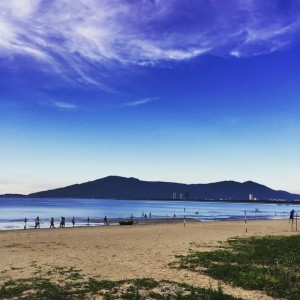 One of my life greatest privileges is having the opportunity to meet these women. They have enriched my life with many lessons. Although I love touching the soil of my ancestors, eating the food of my childhood, and breathing the air of my people, the profound lesson of traveling is more witnessing breathtaking sites or cuddling in happiness. The truth is that there is more to life than happiness. Happiness can play a critical part in one’s life and everyone deserves to feel happy. But it cannot be the ultimate prize. The lesson here is to be “gritty” in life and to truly live a meaningful life – to feel the ups and the downs, to pursue our passion regardless of obstacles, and to flow with the ripples of time.
One of my life greatest privileges is having the opportunity to meet these women. They have enriched my life with many lessons. Although I love touching the soil of my ancestors, eating the food of my childhood, and breathing the air of my people, the profound lesson of traveling is more witnessing breathtaking sites or cuddling in happiness. The truth is that there is more to life than happiness. Happiness can play a critical part in one’s life and everyone deserves to feel happy. But it cannot be the ultimate prize. The lesson here is to be “gritty” in life and to truly live a meaningful life – to feel the ups and the downs, to pursue our passion regardless of obstacles, and to flow with the ripples of time.
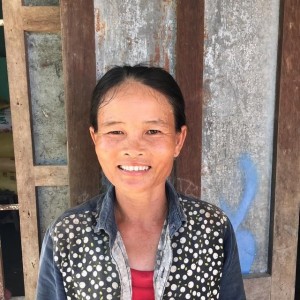 At the University of Pennsylvania, I often complain about the workload, the internship, the balancing of life in general….also known as “the ultimate struggle bus” and at times, I want to throw in my towels and call it a day. Yet having witnessed the struggles of others and how they dealt with their struggles, I learn on how to embrace my own “struggle bus,” enjoy the ride, and steer my life towards the direction of my choosing. Most importantly, I must not give up! Without a doubt, I was one of the most fortunate students at University of Pennsylvania to be given this opportunity.
At the University of Pennsylvania, I often complain about the workload, the internship, the balancing of life in general….also known as “the ultimate struggle bus” and at times, I want to throw in my towels and call it a day. Yet having witnessed the struggles of others and how they dealt with their struggles, I learn on how to embrace my own “struggle bus,” enjoy the ride, and steer my life towards the direction of my choosing. Most importantly, I must not give up! Without a doubt, I was one of the most fortunate students at University of Pennsylvania to be given this opportunity.


